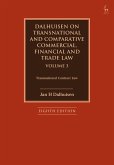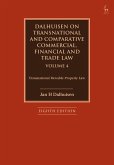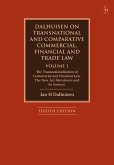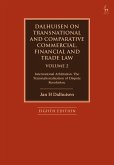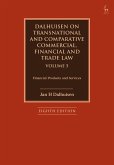This book adopts a transnational methodology to reflect on the legalisation of international economic relations. A Liber Amicorum for Professor Francis Snyder, it outlines the ways in which legal scholarship has taken his legacy further in relation to the concept of transnational law, the 'law in context' method, and the evolution of sustainability law. The lens is both theoretical and practical, delving into international investment law, financial/monetary law, free trade agreements, indigenous rights, and food law, and covering case studies from EU law, WTO law, American law, Chinese law, and Indonesian law.
The chapters explore how Snyder's ideas have advanced legal research and determined change in regulation, impacting trade relationships worldwide. Part I of the book gives an overview of the actors, the norms, and the processes of transnational economic law, discussing sites of governance, legal pluralism, and soft law. Part II takes stock of the 'law in context' research method, looking not only at the way in which it can be refined and used by academics, but also at the practical implications of such a method to improve regulatory settings and promote social and policy goals (including the emerging generation of FTAs, such as TPP, TTIP, and RCEP). Part III focuses on sustainability law, assessing Francis Snyder's contribution to systemic changes and reforms in China and the Asia Pacific region.
The book is a must have for any academic or practitioner interested in an up-to-date account of the recent developments in transnational trade law research.
The chapters explore how Snyder's ideas have advanced legal research and determined change in regulation, impacting trade relationships worldwide. Part I of the book gives an overview of the actors, the norms, and the processes of transnational economic law, discussing sites of governance, legal pluralism, and soft law. Part II takes stock of the 'law in context' research method, looking not only at the way in which it can be refined and used by academics, but also at the practical implications of such a method to improve regulatory settings and promote social and policy goals (including the emerging generation of FTAs, such as TPP, TTIP, and RCEP). Part III focuses on sustainability law, assessing Francis Snyder's contribution to systemic changes and reforms in China and the Asia Pacific region.
The book is a must have for any academic or practitioner interested in an up-to-date account of the recent developments in transnational trade law research.



